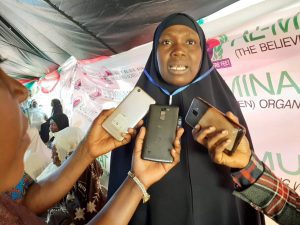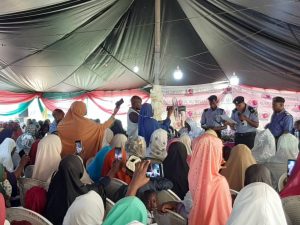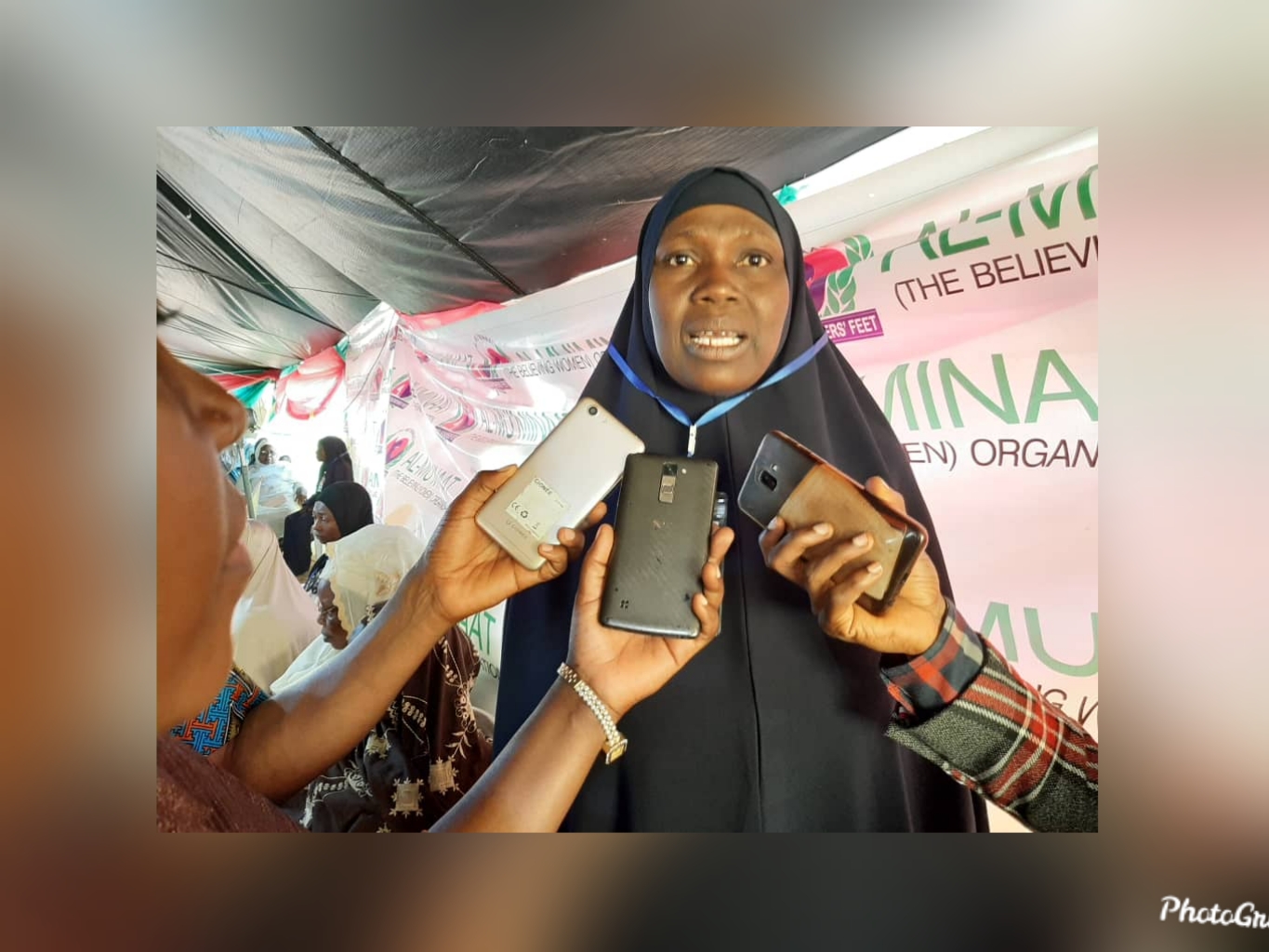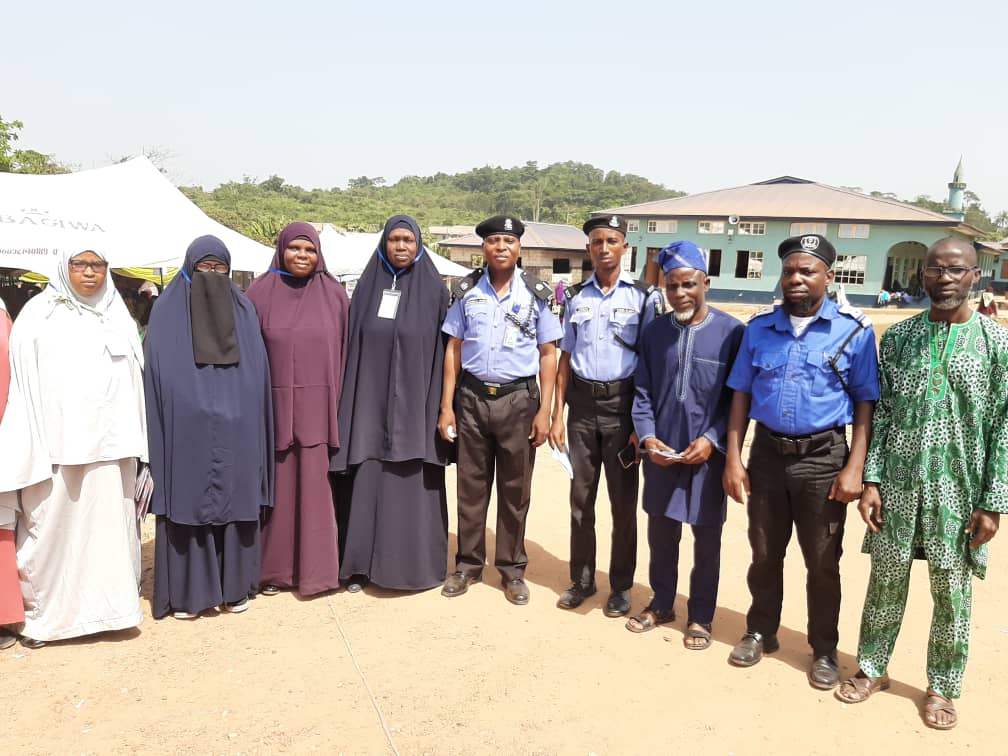In this interview with Muslim News, the National Amirah (female president) of Al-Mu’minaat who also doubles as the Assistant Director, Ministry of Education, District 2, Lagos state, Alhaja Nimotullah AbdulQadri spoke on the theme, ‘The Mirage’ and other matters affecting Muslim homes.
MN: The theme of this year’s Al-Mu’minaat NTF was Mirage. What informed it?
Today, a lot of women, especially the Muslim women have deviated from the focus and the purpose of creation. Today, you hear that a Muslim woman got impregnated either through rape or without proper nikaah. You also hear that young girls were used for money rituals and all sorts. These are things that call for deep thought. Is it that the woman is not at home again? Today, you hear about divorce among the Muslims. Is it that we don’t have the Qur’an with us again or we don’t understand it?
We found out that a lot of people don’t have time for their home anymore. And the reality is that we are not getting what we are running after. For instance, in the Western world, we have observed that Islam is fast growing. But in Nigeria today, instead of us to remain focused, we deviate from what Islam says. So, in our organisation today, we decided that this year is going to be dedicated to calling our attention back to the path of Allah especially those of us that are Muslims.
MN: What do you think are the causes of divorce among Muslims?
There are many reasons for that. Today, we don’t have time for the Deen. There is no established Islamic family where the husband and the wife and the children would sit down to learn the Qur’an. We don’t have time because we want to make ends meet.

Secondly, economical issues. It is not easy to make ends meet nowadays. However, Allah said He has created man into toil and struggle. Everybody is now struggling but today, because we love these material things, we find out that the economic problem is aggravated. The promise of Allah is that if we are patient, He would turn the economy around.
Also, the spiritual digression is another issue. This economic problem has led to emotional instability. It brings out some negative reactions in people. Sometimes because there is no money, you are not getting it, things are not coming to you the way they were before, people start reacting. Therefore, the major causes of this are two: the spiritual angle which we have forgotten and the economic dimension.
MN: Can we say divorce is a cause of the negative developments such as crimes we see in the society today?
Yes of course, it is. A child that is not trained what do you expect from such a child? If a child is not trained, we shouldn’t expect more. What we are experiencing today is because the wives especially are not there to train the children. We are not close to them.

The most dangerous problem is social problem. We have exposed these children to social problems all because we want to be civilised. In some cases, all because we don’t want to be too involved in their lives so it affects their upbringing. So, we have seen the social media as something that can train our children for us and we have seen the negative impacts on them today. At the end of the day, we can see the results on the society.
MN: What are the solutions to these challenges?
The first thing is to go back to Allah. Let every individual study the injuctions of Islam. We have roles to play. We have duties Allah has assigned to us. The Prophet said that all of us are Shepards and we would be asked how we shepard our flocks.
A woman is a Shepherd in her family. She takes care of her husband, children and the home. So, let every woman be conscious of that duty as assigned to her.
The second one is that we should get closer to our children. Enough of running after material things. Our children should be our best friends. Every woman should go and learn child upbringing. A lot of women out there are just after marriage. We need to study and learn as well. I think that is another step: knowing what parenting involves and getting it right.
The third one is our curriculum in schools. The curriculum in Nigeria from primary to tertiary level need to be reviewed. What are we teaching in school? What is the impact of curriculum in school? I am a teacher. There are some subjects we teach Of which its curriculum is set to bring positive impact on the society. But because of some things that surround it, teachers are not able to pass that knowledge. The tools are not there. I think that’s another area.

Lastly is that as women, we need to rely on Allah. Enough of comparing ourselves with other women out there. If we want Nigeria to be good today, we should train the children. People looting our money today were given birth to by women. They have been given an upbringing that is not good. So, we need good training and upbringing. The fear of Allah is in the heart.
MN: Tell us more about the camping programme
Camping programme is a core activity of Al-Muminat organisation. It is a yearly programme. This year’s is the 25th edition of the National Al-Muminat Camp. It is a program that brings together all women from different walks of life. We have professionals and adolescents here. The essence of this programme is to develop us spiritually. Then, it is a means of interacting with ourselves. Interaction that brings about positive change.
MN: What about some of the features of the camp?
We are going to have lectures, guidance and counseling sessions where we can speak our minds. We are battling with so many things. We don’t have people to discuss with. We have here, professionals in the field of counseling.
This morning we’ve had talks on counselling, particularly on sexual harassment. So, we are going to have health talk. We have a clinic where people can carry out their health check. As women we need to check our health because we are the engine of the home. We cannot afford to breakdown. So, it’s an opportunity for our women to visit the clinic for medical check-up. Equally, we have vocational training where people get to learn different skills.
Presently, we have the camp in three zones. One is going on in Oyo. As at this morning, there are 600 delegates there. Here, we are over 1,000, getting close to about 2,000 adults. And children here as at last night are close to 345. Another is going on in Abuja. Presently, there are about 260 delegates there. So, we are running the same programme concurrently.



